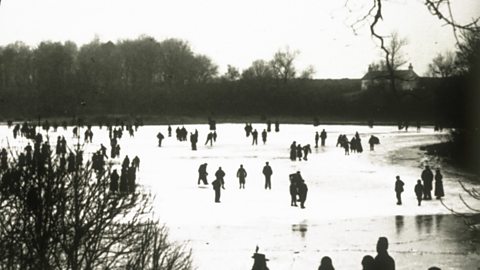Lines 1 - 10
In the first three lines, the speaker describes the effects of the passage of time, in particular, the changes brought by winter. He describes a pond that, when frozen over, provides the opportunity for ice-skating.

The speaker goes onto describe how, during winter, vibrancy and colour appear to be drained from the scene as white dominates.
Deterioration and death are two prominent ideas in the opening line of the poem. The speaker tells us that the woods decay
and summer dies
. Both these words contribute to an idea of ageing and, eventually, passing away. Decay suggests that, over time, things become less vibrant and this is an idea that is central to Tennyson’s Tithonus in which the main character himself fades over time.
The metaphor used to describe the swan as a ghost
links with this idea of life ebbing away. A poet might choose to describe a swan as a beautiful creature that represents purity but, in this case, the imagery is dark and pessimistic. The swan becomes a shade, haunting the pond, and helps to establish the sense of melancholy that permeates the poem.
The speaker makes the unusual choice of the adjective heavy
to describe the light. While we would not naturally associate light with weight, this creates a vivid impression of the winter sunlight that illuminates but provides little warmth and is almost oppressive. This faint light fits with the idea of life fading away.
Despite the bleak mood, a single moment of optimism emerges in the speaker’s assertion that although the light contains no obvious hint of dearest blue
, nevertheless, poets would find it
. The implication is that even in the darkest, coldest of days, the memory and promise of summer can still be recalled if we allow our consciousness to find it.